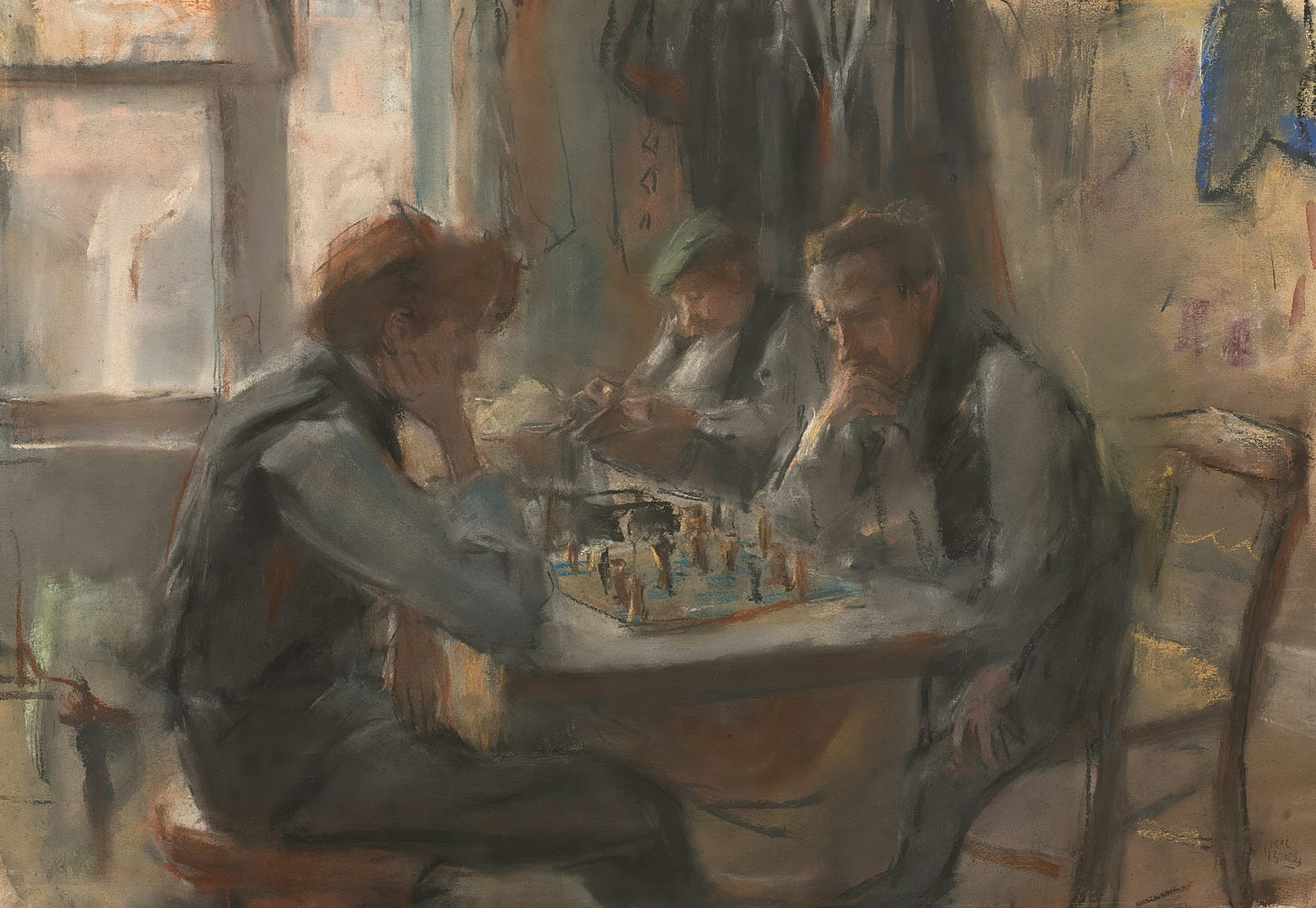The energy economy
Inertia — 233
The Energy Economy
For years I was overdrafted, though no one ever sent me the bill. I gave out hours and attention as if generosity had no ledger, said yes as if yes were the only word worth knowing. It looked like devotion, even a kind of ambition, but it was bankruptcy disguised as diligence, a quiet collapse dressed in good manners.
Energy is not infinite, though I liked to pretend otherwise. It behaves more like a bank account, a delicate balance between deposits and withdrawals, a portfolio if you want to get fancy. Some things accrue slow interest—a book read without checking the time, an unhurried morning that tastes like eggs and stillness. Other things leak away like debt. The compulsive checking, the fractured focus, the endless choreography of pleasing. The interest of that sort of debt is stress, and stress compounds daily.
No one teaches you this. We’re told to manage money, time, tasks—but not vitality, not breath, not the fragile current that lets any of it happen at all. And so we sprint into overdraft, congratulated for our stamina, while the account whispers empty. You spend recklessly: the midnight scroll, the compulsive message-checking, the smile you put on when you’d rather not. These are withdrawals you barely notice until the balance collapses under breath. Other things invest quietly, like a well-placed savings bond; a long walk with no destination, a book read without the clock breathing down your neck, a hobby you refuse to surrender to obligation. They don’t just return what they take; they grow it, slow compounding you can only see when you look back.
Energy is not a salary; it doesn’t simply arrive each morning at a fixed rate. It’s a portfolio of choices. Some bleeding, some accruing, some merely idle. You don’t have to be a genius investor to notice which is which. You just have to pay attention to how your body feels when you’re done: do you leave the moment smaller, or larger? Do you walk away indebted, or richer than when you began?
Energy as a portfolio
Now let’s see it differently. A bank account may be too blunt an image. It suggests deposits and withdrawals, neat arithmetic. Balance sheets that reconcile at the end of the month. But energy is not arithmetic; it’s closer to investment. We stake parts of ourselves into different ventures, such as work, family, friendships, ambitions. Even solitude. Some pay back with interest, while others slowly devalue us.
The danger is not that we spend, but that we invest without noticing the terms. Some bonds lock us in for years at a poor rate of return. Some risks of saying “yes” drain us even when the reason glitters like gold. And yet, the most generous investments—the ones that quietly yield dividends—are often the least glamorous: a walk in the late afternoon sun, the mesmerising rhythm of a hobby, or the simple discipline of saying no when we mean it.
Thinking of energy as a portfolio changes the question. It is not “Do I have enough left to get through the week?” but “Where have I put my stake, and where does it return?” It’s a shift from survival to strategy. We don’t need to hoard energy; we need to curate it.
Every portfolio is managed not by attention alone, but by instinct. And attention is its own kind of energy. Perhaps the rarest kind. Where we place it, life grows more vivid; where we scatter it, life turns thin.
For much of my life, I spent this currency without care. I said yes when I meant no. I mistook depletion for generosity, as if giving beyond my means proved kindness. I thought every yes was evidence of value, and that to care was to spend myself thin.
It has taken years to learn that attention, wisely given, is not a diminishing resource but a strengthening one. When I attend what enlivens me, I find much more to give.
This is the quiet paradox: the more carefully we place attention, the less exhausted we feel. Energy does not leak away when it flows in alignment. It doubles back, compounds, creates room.
There’s always the temptation to keep running—toward another city, another lover, another shiny replacement for the dull ache of stillness. But I’ve started to wonder if the real work is not in the sprint, but in the pause. To stand inside the sameness long enough for it to show its colours. Because the most important thing in life isn’t rushing ahead, but learning to stop and be still.
Perhaps contentment is not a destination at all, but a kind of apprenticeship. Perhaps stillness has a language I’ve only just begun to learn. If we stay with routine instead of running from it, we might see things in it we normally overlook.
And maybe the question isn’t where next? but what now?



